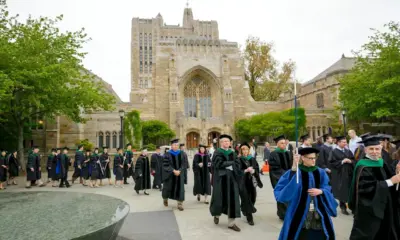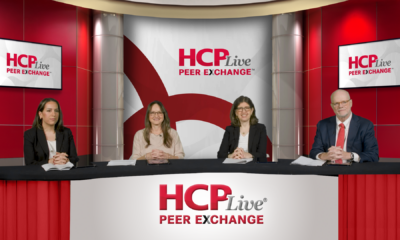Education
U.S. Universities Face Reforms Amid Declining Public Trust

American universities are confronting significant challenges as their traditional financial model, heavily reliant on federal grants and taxpayer-backed student loans, falters. A recent commentary highlights the urgency for these institutions to accept reform proposals set forth by the administration or risk facing legal repercussions and funding cuts.
The commentary, authored by Inez Stepman, a senior policy and legal analyst at the Independent Women’s Forum, argues that universities are at a critical juncture. They must address rising costs, prioritize American students, and comply with existing civil rights laws. The administration has extended what Stepman describes as an “olive branch” to select universities, aimed at averting a financial crisis exacerbated by public distrust and allegations of discrimination.
One major point in the proposal is the assertion that many universities have engaged in illegal practices, such as using racial preferences in admissions and hiring, which violates laws like Title IX and Title VI. Stepman points out that institutions like Harvard and Columbia have already settled lawsuits related to these issues. She emphasizes that while universities might attempt to resist federal investigations, the long-term outcomes will likely favor those who comply with the law.
The contract proposed by the administration outlines several key reforms. Among these, universities are encouraged to freeze tuition increases, limit foreign student enrollment to 15 percent, and ensure that international students receive education on American civic values. This aims to foster a better understanding of appropriate conduct while they study in the United States.
In light of recent events, including the tragic murder of conservative speaker Charlie Kirk on a university campus in Utah, Stepman argues that universities should bear the cost of security for invited speakers. This would prevent the use of security expenses as a means to silence dissenting opinions and protect the rights of all students to engage in open discussions.
Critics of the proposed reforms have expressed concerns about potential infringements on academic freedom. A joint op-ed in the Chronicle of Higher Education from both liberal and conservative scholars emphasizes the necessity for universities to maintain their mission of truth-seeking. However, Stepman counters that elite American universities have not acted as independent entities, but rather leveraged taxpayer investments to reinforce their status in the elite pipeline while neglecting the educational needs of average Americans.
The commentary underscores a growing public sentiment that the current model of higher education is unsustainable. If universities wish to retain their advantageous position while continuing to benefit from substantial federal funding, they will need to adopt reforms outlined in the proposed contract.
In conclusion, Stepman urges universities to embrace this opportunity for reform proactively, rather than waiting for the inevitable consequences of lawsuits and public discontent. The time for accountability, she argues, is now, as the age of unchallenged autonomy for these institutions appears to be coming to an end.
-

 Science1 month ago
Science1 month agoNostradamus’ 2026 Predictions: Star Death and Dark Events Loom
-

 Technology2 months ago
Technology2 months agoOpenAI to Implement Age Verification for ChatGPT by December 2025
-

 Technology7 months ago
Technology7 months agoDiscover the Top 10 Calorie Counting Apps of 2025
-

 Health5 months ago
Health5 months agoBella Hadid Shares Health Update After Treatment for Lyme Disease
-

 Health5 months ago
Health5 months agoAnalysts Project Stronger Growth for Apple’s iPhone 17 Lineup
-

 Technology5 months ago
Technology5 months agoElectric Moto Influencer Surronster Arrested in Tijuana
-

 Education5 months ago
Education5 months agoHarvard Secures Court Victory Over Federal Funding Cuts
-

 Health5 months ago
Health5 months agoErin Bates Shares Recovery Update Following Sepsis Complications
-

 Technology7 months ago
Technology7 months agoMeta Initiates $60B AI Data Center Expansion, Starting in Ohio
-

 Technology6 months ago
Technology6 months agoDiscover How to Reverse Image Search Using ChatGPT Effortlessly
-

 Science4 months ago
Science4 months agoStarship V3 Set for 2026 Launch After Successful Final Test of Version 2
-

 Technology7 months ago
Technology7 months agoRecovering a Suspended TikTok Account: A Step-by-Step Guide





















